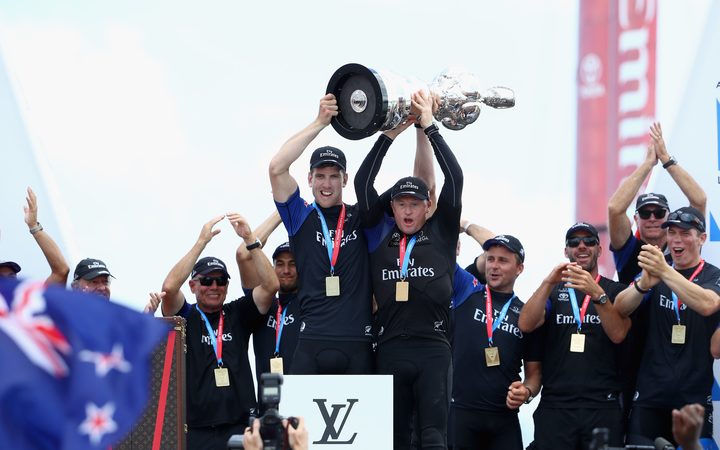How Team NZ Won the America’s Cup
Since Team New Zealand’s victory in the America’s Cup last week, the buzz surrounding the team and their comeback from a devastating loss in 2013 has yet to die down. Ahead of the celebratory parade and harbour sail planned for this Thursday in Auckland, let’s think outside of the technical aspects and look at three key characteristics which allowed team NZ to take the win.
Perseverance
After their loss in San Francisco in 2013, it would have been reasonable to expect Team NZ to be slightly disheartened going into 2017. Instead, the team displayed quite a bit of resilience by turning the lessons learned from previous losses and mistakes into their motivation. The main lesson seemed to be the need to constantly developing and improving, and the team stuck to their word on this – even building new appendages the night before the deciding race.
Team chairman Stephen Tindall has spoken quite a bit on the perseverance displayed by Team NZ, commending team members for pushing on in the face of setbacks and adversity in the lead-up to the America’s Cup. The endless long hours put in over late nights and weekends are a testament to the team’s commitment and certainly paid off in the end.
This resilience came in handy during the actual races as well. The team bounced back from damage occurred in the final phase of practice races by repairing their holed hull overnight. The same come-back-fighting spirit showed when, during the fourth race of the challenger semi-finals, Aotearoa nose-dived, turning into a shattered mess and flinging half of the crew overboard. Two days later, the boat returned to the races in even better shape than before and the determined crew was victorious in their next two races.
Team Dynamics
While the value of a close-knit crew aboard Aotearoa should not be underestimated, the true measure of NZ’s success can be seen when taking a closer look at the full 90-member team. When looking ahead to 2017, it became a priority to create the right team from the ground up. This included carefully selecting the shore crew, hydraulic experts, naval architects and even support team members such as nutritionists.
Creating a fresh team dynamic was important enough for the team to take a risk in signing up Peter Burling and Blair Tuke, neither of which had sailed in the America’s Cup before and whom some worried would be too focused on the 2016 Rio Olympics. Burling and Tuke proved calming forces on the water, further allowing the team to keep cool under pressure, undertake some risky manoeuvres and recover quickly from mistakes. The faith and expectations placed on the young team has proven to be well worth it, as the focus will now shift on retaining the talented team for 2021.
Leadership
Tauranga native and new helmsman Peter Burling demonstrated some substantial leadership skills and growth during and leading up to the final matches. Burling quickly proved to be composed and calm at the wheel, rapidly learning from mistakes made and turning setbacks into lessons for his teammates. He also proved a worthy opponent for Oracle leader Jimmy Spithill, a two-time America’s Cup champion. Burling never faltered when jabs were thrown at him by Spithill during press conferences, and he was able to force Spithill into making some key errors out on the water.
Not to be overshadowed by Burling is skipper Glenn Ashby, the only remaining crew member from 2013. Ashby used his previous America’s Cup experience and level-headed disposition to become the glue holding the team together. Governance from Board chair Stephen Tindall and CEO leadership from Grant Dalton also proved the winning formula.
Tying it all Together
Watercooler chat throughout the Bay of Plenty has no doubt been dominated by the sporting world this past week, as Team NZ’s America’s Cup win saddles alongside the final test match of the Lions Tour this weekend. That being said, the characteristics discussed above which led to the team’s success can also be beneficial in – you guessed it – the workplace. In the face of adversity, businesses may consider the same honest assessment that was made by Team NZ following their loss in 2013. Selecting strong and capable leaders, placing an emphasis on team dynamics, and encouraging perseverance and resilience to bounce back by all involved can mean the difference between success and defeat.
Ian Chitty & Stacey Cutten

